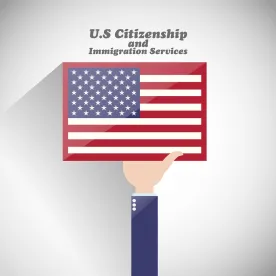President Biden Adds India to List of Countries Subject to Direct Travel Ban Due to COVID-19
Beginning on May 4, 2021, at 12:01 AM ET, all nonimmigrants traveling from India are banned from entering the United States, unless they already have a valid visa stamp in their passport and have been outside of India for more than 14 days before traveling to the United States. (See the White House proclamation released on April 30, 2021, available here.)
This travel ban does not apply to U.S. citizens or U.S. permanent residents (i.e., green card holders). This ban also does not apply to nonimmigrants (i.e., H, L, E, O visa holders) attempting to travel out of India to the United States, if they fall within any of the following categories:
- Any nonimmigrant who is the spouse of a U.S. citizen or lawful permanent resident;
- Any nonimmigrant who is the parent or legal guardian of a U.S. citizen or lawful permanent resident who is unmarried and under the age of 21;
- Any nonimmigrant who is unmarried and under the age of 21 and the sibling of a U.S. citizen or lawful permanent resident who is also unmarried and under the age of 21;
- Any nonimmigrant/noncitizen who is the child, foster child, or ward of a U.S. citizen or lawful permanent resident, or who is a prospective adoptee seeking to enter the United States pursuant to the IR-4 or IH-4 visa classifications;
- Any nonimmigrant/noncitizen traveling at the invitation of the U.S. government to work to contain the virus;
- Any noncitizen traveling pursuant to a C-1, D, or C-1/D nonimmigrant visa as a crewmember or any noncitizen otherwise traveling to the United States as air or sea crew;
- Any nonimmigrant entering pursuant to one of the following visas: A-1, A-2, C-2, C-3 (as a foreign government official or immediate family member of an official), E-1 (specifically as an employee of TECRO or TECO and their immediate family members), G-1, G-2, G-3, G-4, NATO-1 through NATO-4, or NATO-6;
- Any nonimmigrant entering within the scope of section 11 of the United Nations Headquarters Agreement;
- Any nonimmigrant/noncitizen who is a member of the U.S. Armed Forces or who is a spouse or child of a member of the U.S. Armed Forces;
- Any nonimmigrant entering to support U.S. law enforcement objectives, as determined by the Secretary of State, the Secretary of Homeland Security, or their respective designees, based on a recommendation of the Attorney General or his designee;
- Any nonimmigrant whose entry would be in the national interest, as determined by the Secretary of State, the Secretary of Homeland Security, or their designees (more information about this national interest exception is available here); or
- Any nonimmigrant who travels to a third country that is not subject to any COVID-19 bar and quarantines there for at least 14 days before attempting to enter the United States. Please note this option requires some due diligence to confirm that the third country also does not bar nonimmigrants from India from traveling there directly and if a visa is required to enter such third country.
The new proclamation suspending direct entry from India is in addition to the travel bans already in place for the following countries and regions with regard to direct travel to the United States: the United Kingdom, Ireland, Schengen Region, China, Iran, South Africa, and Brazil. Thus, nonimmigrants who are traveling to the United States before the effective date of the new proclamation should avoid traveling to, or obtaining connecting flights through, these countries and regions before they arrive in the United States.
USCIS Reestablishes Policy Guidance to Give Deference to Previous Decisions
On April 27, 2021, the U.S. Citizenship & Immigration Services (“USCIS”) announced reinstatement of a 2004 adjudication policy on H-1B and L-1 petitions that gives deference to prior USCIS determinations of eligibility when adjudicating extension requests involving the same parties and facts as the initial petition or application.
Under the 2004 adjudication policy guidance, when an employer submits an extension request for work authorization (such as an L-1 or H-1B) for the same position, USCIS policy gave deference to previously approved petitions. The policy applied unless there was a material error, material change, or new material facts that required adjudicating the H-1B extension anew.
However, in 2017, the Trump administration terminated the deference policy and required that all petitions be adjudicated as if they were a new petition. That standard of review resulted in a significant increase of agency requests for additional evidence (or “RFE”), causing substantial backlogs in petition adjudications.
This USCIS change in policy is in accordance with President Biden’s “Executive Order on Restoring Faith in Our Legal Immigration Systems and Strengthening Integration and Inclusion Efforts for New Americans,” which is intended to promote efficient and fair adjudication of immigration benefits.




 />i
/>i

